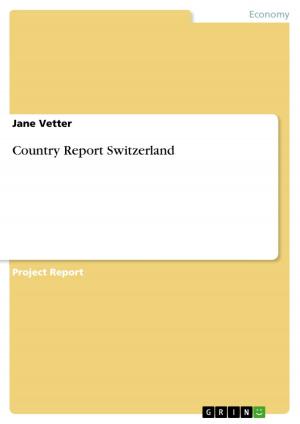Process Analysis Technique
Business & Finance, Management & Leadership, Production & Operations Management| Author: | James Tallant | ISBN: | 9783640837410 |
| Publisher: | GRIN Publishing | Publication: | February 21, 2011 |
| Imprint: | GRIN Publishing | Language: | English |
| Author: | James Tallant |
| ISBN: | 9783640837410 |
| Publisher: | GRIN Publishing |
| Publication: | February 21, 2011 |
| Imprint: | GRIN Publishing |
| Language: | English |
Essay from the year 2010 in the subject Business economics - Supply, Production, Logistics, grade: 99.00, University of Phoenix, course: ISCOM 472 Lean Enterprise, language: English, abstract: Process Analysis Technique Introduction Radio Frequency Identification (RFID) can be advantageous to organizations by offering those tools to better plan production and respond better to meet market demand. RFID allows organizations to perform automated inventory counts and speed shipping and receiving at the distribution level of the supply chain. At the customer level or retail level, RFID will lower stock outs, enable product tracking, reduce theft, and assist in point of sale (POS) information. This paper will concentrate how RFID technology and its tags assist in the transportation and distribution of goods between Hong Kong and Japan as well as between Shanghai, China to Los Angeles. Among the topics covered will be how the new process using RFID will look like, how the new process will reset customer expectations, what challenges the organization will face when implementing the new process, and what other five industries might benefit from RFID.
Essay from the year 2010 in the subject Business economics - Supply, Production, Logistics, grade: 99.00, University of Phoenix, course: ISCOM 472 Lean Enterprise, language: English, abstract: Process Analysis Technique Introduction Radio Frequency Identification (RFID) can be advantageous to organizations by offering those tools to better plan production and respond better to meet market demand. RFID allows organizations to perform automated inventory counts and speed shipping and receiving at the distribution level of the supply chain. At the customer level or retail level, RFID will lower stock outs, enable product tracking, reduce theft, and assist in point of sale (POS) information. This paper will concentrate how RFID technology and its tags assist in the transportation and distribution of goods between Hong Kong and Japan as well as between Shanghai, China to Los Angeles. Among the topics covered will be how the new process using RFID will look like, how the new process will reset customer expectations, what challenges the organization will face when implementing the new process, and what other five industries might benefit from RFID.















